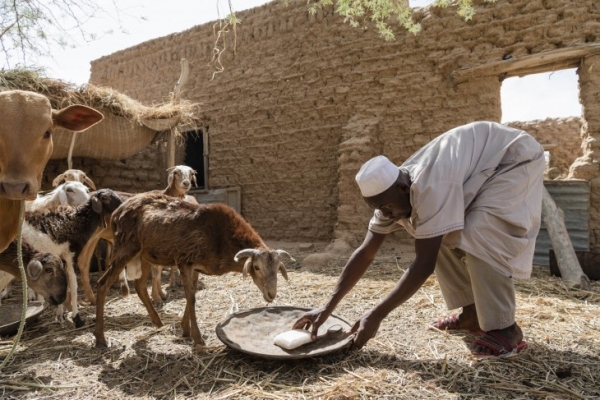With 24 million people in need, the Sahel region of Northern Africa bears one of the world’s most severe humanitarian crises. As armed conflict riddles the Lake Chad Basin, civilians must contend with the subsequent widespread poverty and an increasingly fragile economic and political structure. Amidst these mounting issues, the effects of climate change exacerbate the devastation within the region.
The Sahel region is particularly vulnerable to the effects of climate change, as temperature rises 1.5 times faster than the global average. Land and water resources are increasingly unreliable due to erratic rainfall and shortened wet-seasons. Importantly, around 50 million people in the Sahel are economically dependent on livestock rearing and crop farming. However, 80% of their land has been degraded following frequent periods of drought. These environmental changes have led to a region-wide food shortage, leaving nearly 33 million people food insecure.
In Mali and Niger specifically, the food crisis incites inter-community conflict between pastoralists and agriculturalists. In these countries, significant amounts of grazing area have been wiped out, thereby depleting natural resources. As a result, pastoralist communities are forced to migrate and compete with agriculturalists for land. The resulting violence sullies the once symbiotic relationship between farmers and herders. Additionally, these communities combat limited access to healthcare, lack of education and insufficient income. Under these conditions, many are compelled to migrate or even join armed groups to ensure their economic survival.
The interdependent nature of climate change, food crises and conflict has been well documented. In fact, United Nations Deputy Secretary-General, Amina Mohammed, cites climate change as one of the root causes of the conflict in Sahel region. The International Committee of the Red Cross posits several global climate actions that can be taken to alleviate the impact of climate shock on conflict.
To know more, please read:
https://www.icrc.org/en/document/mali-niger-climate-change-and-conflict-make-explosive-mix-sahel
https://www.climatecentre.org/news/1066/un-sahel-region-one-of-the-most-vulnerable-to-climate-change
https://reliefweb.int/sites/reliefweb.int/files/resources/Sahel%20HNRO%202018.pdf







